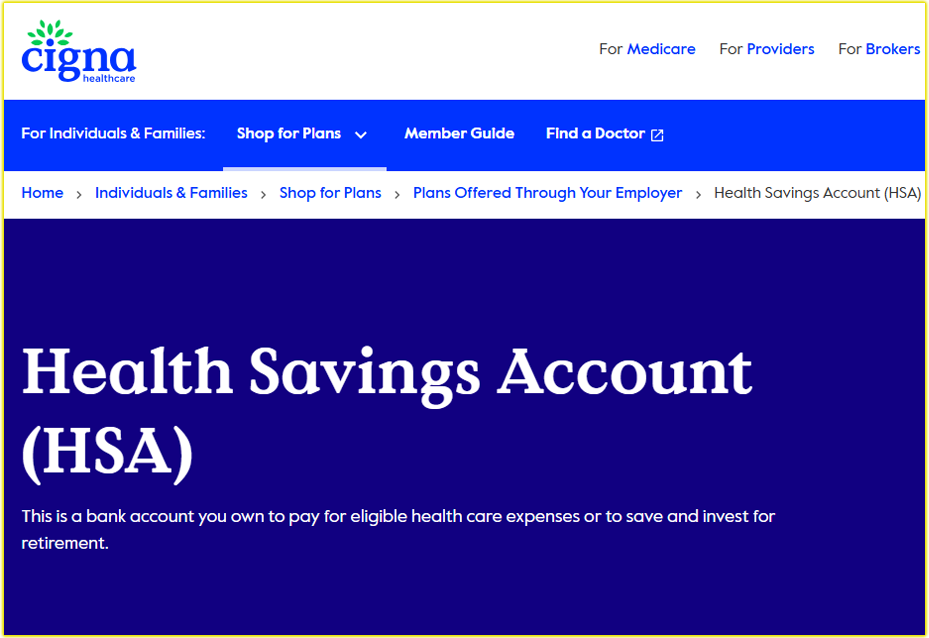As someone who’s navigated the world of personal finance and healthcare options, I’ve come to appreciate tools that simplify saving for medical expenses. One such tool is the PNC Health Savings Account (HSA), offered through the PNC BeneFit Plus program.
If you’re exploring ways to manage healthcare costs effectively, this article will walk you through what a PNC HSA is, how it works, and why it might be the right choice for you. I’ll share insights from my research, sprinkle in practical tips, and ensure you have all the details to make an informed decision.
What Is a PNC Health Savings Account?
A Health Savings Account (HSA) is a tax-advantaged account designed to help you save for qualified medical expenses if you’re enrolled in a high-deductible health plan (HDHP).
When I first learned about HSAs, I was struck by their triple tax benefits: contributions are tax-deductible, earnings grow tax-free, and withdrawals for qualified expenses are also tax-free. It’s like a financial Swiss Army knife for healthcare costs.
The PNC HSA, part of the PNC BeneFit Plus platform, is tailored for individuals, families, and employers. PNC Bank, a trusted name in personal banking, serves as the custodian of these accounts, ensuring your funds are secure.
According to PNC’s website, their HSA program provides tools and guidance to help you make informed decisions about healthcare spending. Whether you’re paying for doctor visits, prescriptions, or even future medical needs, this account offers flexibility and control.
Why Choose a PNC HSA?
You might be wondering, “Why go with PNC over other HSA providers?” From my perspective, PNC stands out for its user-friendly tools, like the PNC BeneFit Plus Mobile App, which lets you manage your account on the go.
The app allows you to check balances, view transactions, and even submit reimbursement requests, making it easy to stay on top of your healthcare finances.
Plus, PNC’s integration with online banking means you can access your HSA alongside other accounts, streamlining your financial management.
How Does the PNC HSA Work?
Let’s break down the mechanics of the PNC HSA so you can see how it fits into your financial life. When I first set up an HSA, I found the process straightforward, and PNC’s platform makes it even easier.
Eligibility
To open a PNC HSA, you must:
- Be enrolled in a high-deductible health plan (HDHP).
- Not be covered by another health plan, like Medicare.
- Not be claimed as a dependent on someone else’s tax return.
If you’re unsure whether your health plan qualifies, check with your insurance provider or employer. PNC’s website also offers resources to confirm eligibility.
Contributions
You can contribute to your PNC HSA up to the annual IRS limits, which for 2025 are:
- $4,300 for individual coverage.
- $8,550 for family coverage.
- If you’re 55 or older, you can add a $1,000 catch-up contribution.
I love that contributions can come from you, your employer, or even a family member, and they’re all tax-deductible. You can fund your account through payroll deductions (if offered by your employer) or direct deposits via PNC’s online banking.
Using Your Funds
Your PNC HSA funds can cover qualified medical expenses, such as:
- Doctor visits and hospital stays.
- Prescription medications.
- Dental and vision care.
- Over-the-counter items like bandages or contact lens solution (with a prescription in some cases).
One tip I’ve learned: keep receipts for all expenses. You can reimburse yourself later for payments made out of pocket, which is a great way to let your HSA grow. The PNC BeneFit Plus platform makes tracking these expenses a breeze with its intuitive interface.
Investment Options
Here’s where the PNC HSA gets exciting. Once your account balance reaches a certain threshold (typically $1,000, though you should confirm with PNC), you can invest your funds in mutual funds selected by Mesirow Financial Investment Management, Inc.
I find this feature appealing because it allows your HSA to grow over time, potentially covering future healthcare costs or even serving as a retirement savings tool. However, investments carry risks, and your funds may lose value, so weigh your options carefully.
Health Accounts with Bank of America
Benefits of the PNC HSA for You
When I evaluate financial products, I look for benefits that make life easier and save money. The PNC HSA delivers on both fronts. Here’s what you can expect:
Tax Advantages
As I mentioned earlier, the triple tax benefit is a game-changer. You reduce your taxable income with contributions, grow your savings tax-free, and pay no taxes on withdrawals for qualified expenses. This structure makes the PNC HSA a powerful tool for managing healthcare costs efficiently.
Portability
Your PNC HSA stays with you even if you change jobs or health plans, unlike a Flexible Spending Account (FSA), which is often a use-it-or-lose-it. I’ve switched jobs a few times, and knowing my HSA funds would follow me gave me peace of mind.
Mobile and Online Access
The PNC BeneFit Plus Mobile App (available for iOS and Android) is a standout feature. You can check your balance, pay providers, or upload receipts anytime, anywhere. Pair this with PNC’s online banking, and you’ve got a seamless way to manage your finances.
Employer Support
If your employer offers a PNC HSA, they may contribute to your account or integrate it with other benefits like FSAs or Health Reimbursement Arrangements (HRAs). PNC’s employer-focused solutions make it easy for companies to support their employees’ healthcare needs.
How to Get Started with a PNC HSA
Ready to open a PNC HSA? Here’s a step-by-step guide to help you dive in:
- Confirm Eligibility: Ensure you’re enrolled in an HDHP and meet other requirements.
- Enroll Through PNC: If your employer offers a PNC HSA, they’ll guide you through enrollment. Otherwise, visit www.pnc.com or contact PNC to open an account.
- Fund Your Account: Set up contributions via payroll, online banking, or manual deposits.
- Download the App: Get the PNC BeneFit Plus Mobile App to manage your account.
- Explore Investments: Once your balance grows, consider investing to maximize your savings.
I recommend starting with small contributions if you’re new to HSAs. You can always increase them as you get comfortable.
Things to Keep in Mind
While I’m a fan of the PNC HSA, there are a few considerations to note:
- Fees: PNC may charge maintenance or transaction fees, which can vary based on your account setup. Check their fee schedule to avoid surprises.
- Investment Risks: Mutual funds in the HSA are not FDIC-insured and may lose value.
- Documentation: Always save receipts for medical expenses, as the IRS may request proof for tax purposes.
Why Trust PNC for Your HSA?
PNC Bank has a long-standing reputation for reliable banking services, from checking accounts to mortgages. Their BeneFit Plus platform is designed with user experience in mind, offering tools like mobile apps and online portals to simplify healthcare savings. As someone who values transparency, I appreciate that PNC clearly outlines its HSA features and limitations on its website.
Final Thoughts
The PNC Health Savings Account is more than just a place to park money for medical bills, it’s a strategic tool to save smarter and plan for the future.
I’ve found that combining the tax benefits, portability, and investment options makes it a compelling choice for anyone with an HDHP. Whether you’re paying for a routine checkup or saving for retirement healthcare costs, the PNC HSA gives you control and flexibility.
If you’re ready to take charge of your healthcare finances, visit www.pnc.com to learn more or download the PNC BeneFit Plus Mobile App to get started. Have questions? PNC’s customer service team is there to help you navigate the process.
By choosing a PNC HSA, you’re investing in your financial health today and tomorrow. What’s your next step?



